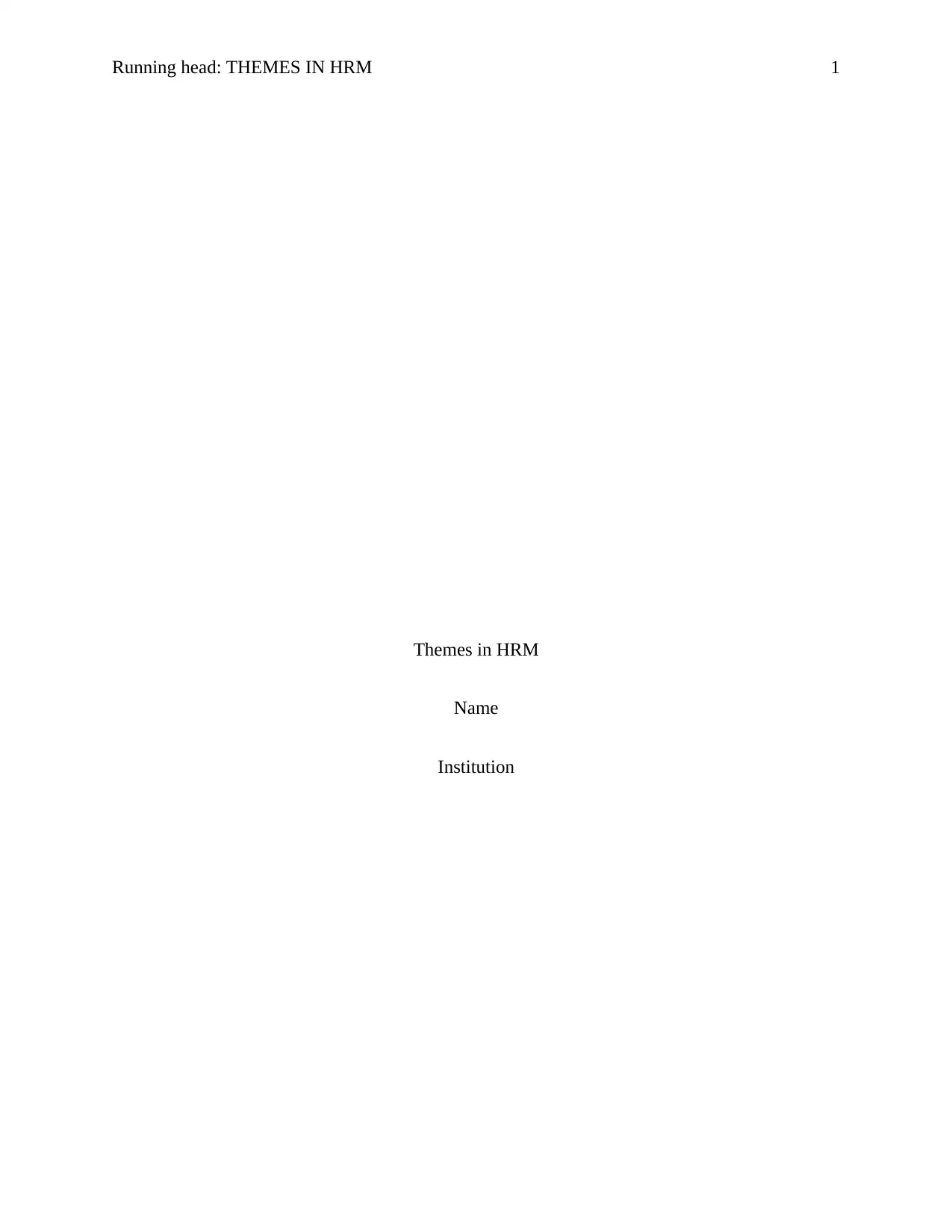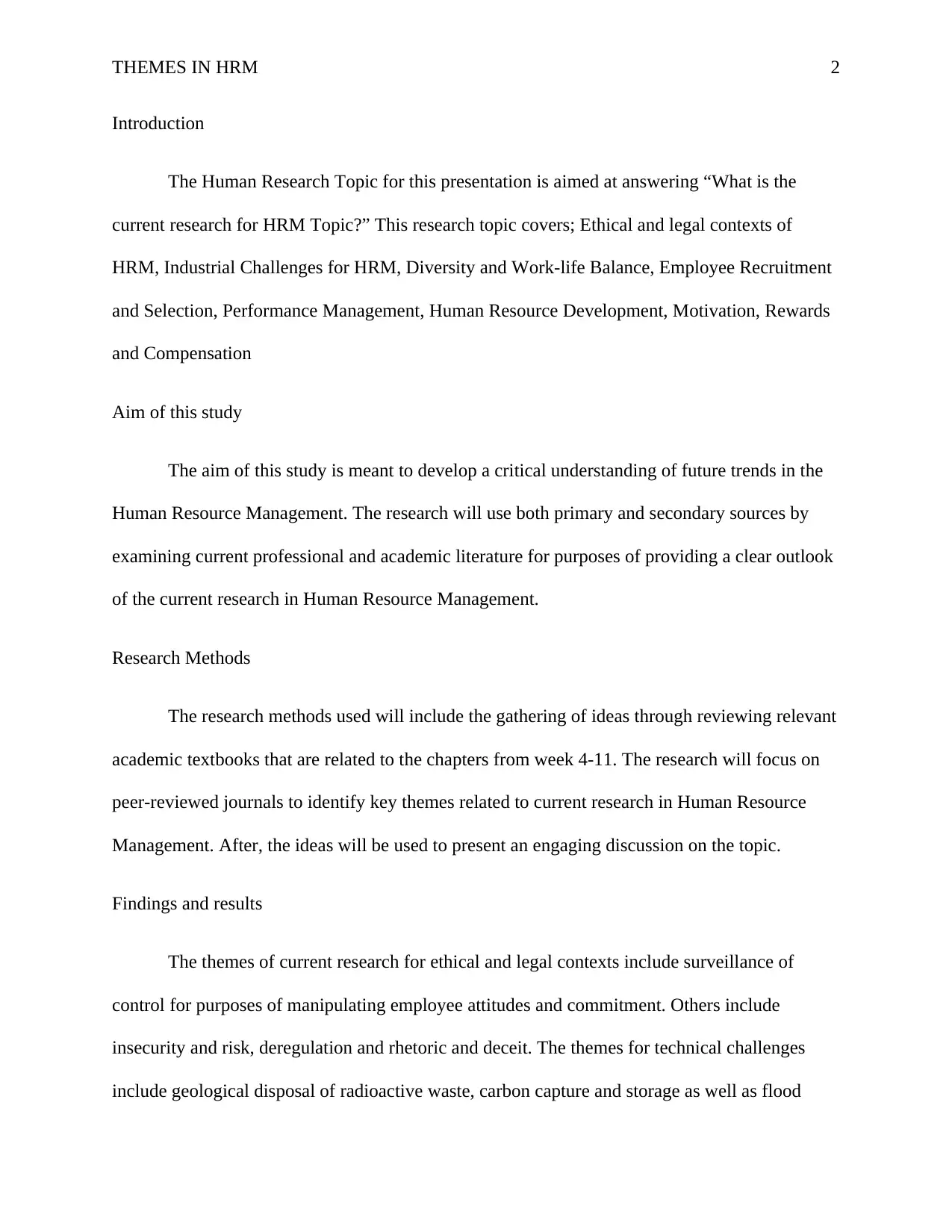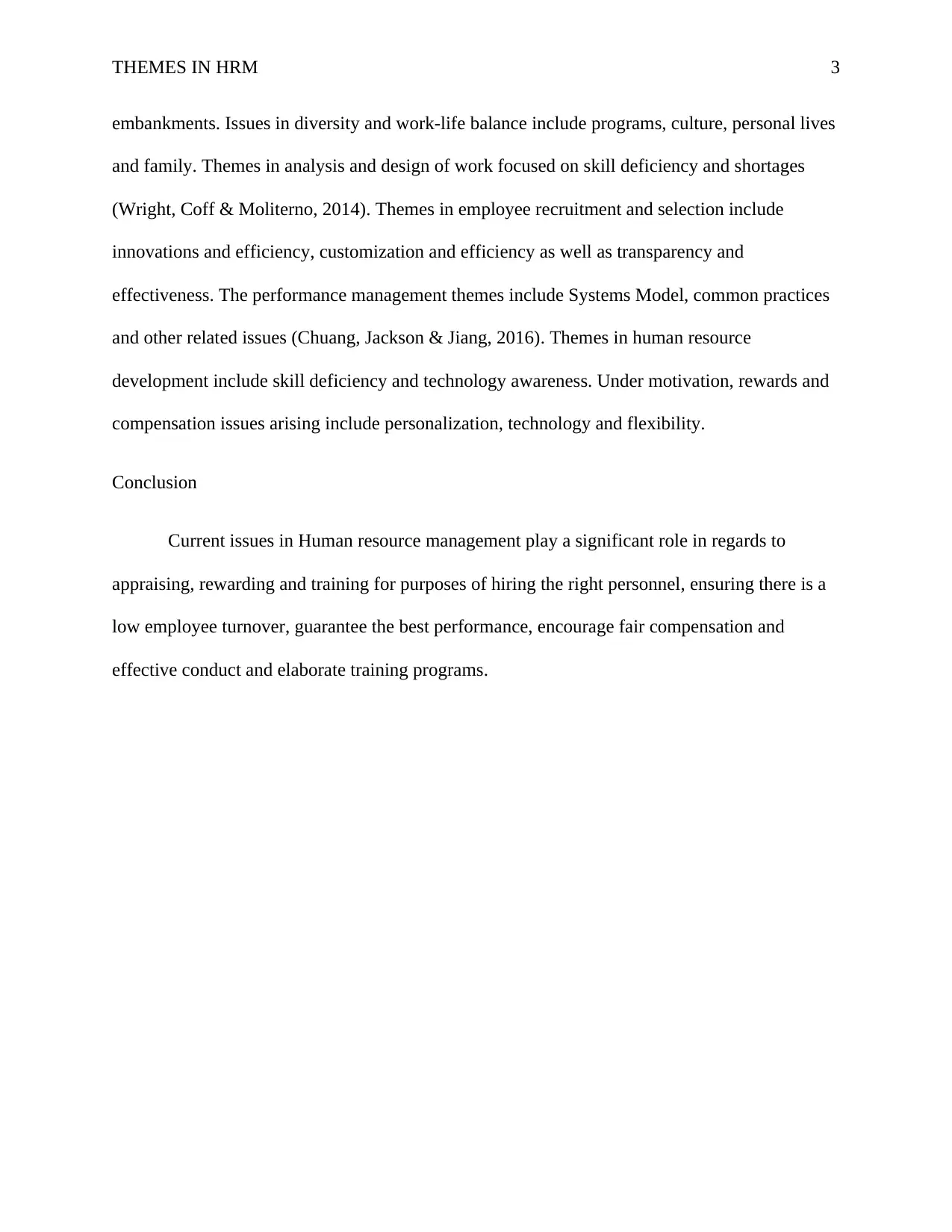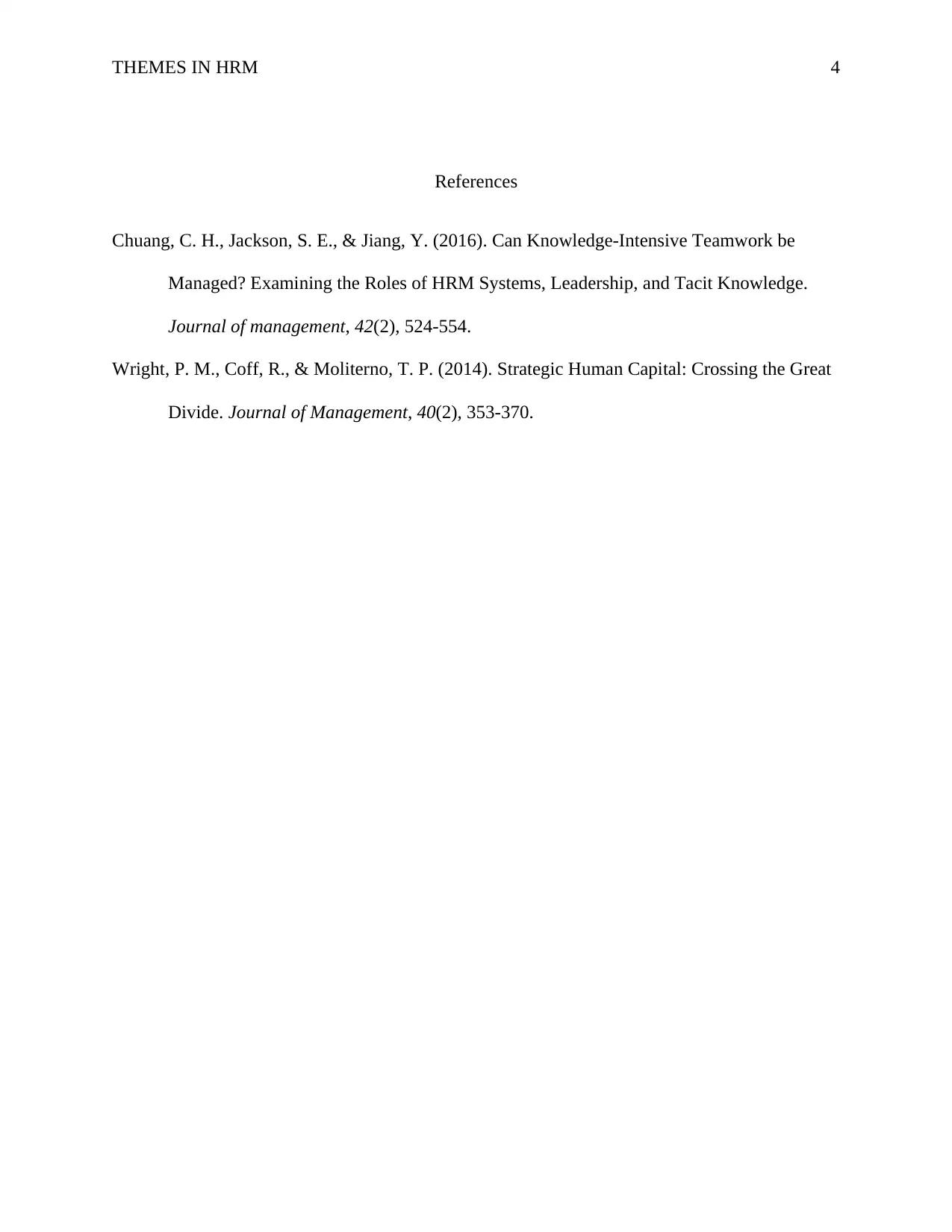HRM Themes Report: HRM Challenges and Current Research Trends
VerifiedAdded on 2020/03/23
|4
|508
|49
Report
AI Summary
This report delves into the current research themes within Human Resource Management (HRM). It examines ethical and legal contexts, highlighting issues such as surveillance, deregulation, and deceit. Industrial challenges, including geological disposal of radioactive waste and carbon capture, are also addressed. The report further explores the significance of diversity, work-life balance, and employee recruitment, emphasizing innovation, customization, and transparency. Performance management is discussed in relation to the Systems Model and other common practices. Additionally, it covers human resource development, particularly skill deficiencies and technological awareness, and explores motivation, rewards, and compensation, focusing on personalization and flexibility. The conclusion underscores the importance of HRM in hiring, retaining employees, and promoting effective conduct and training programs. The report references key academic sources to support its findings.
1 out of 4










![[object Object]](/_next/static/media/star-bottom.7253800d.svg)